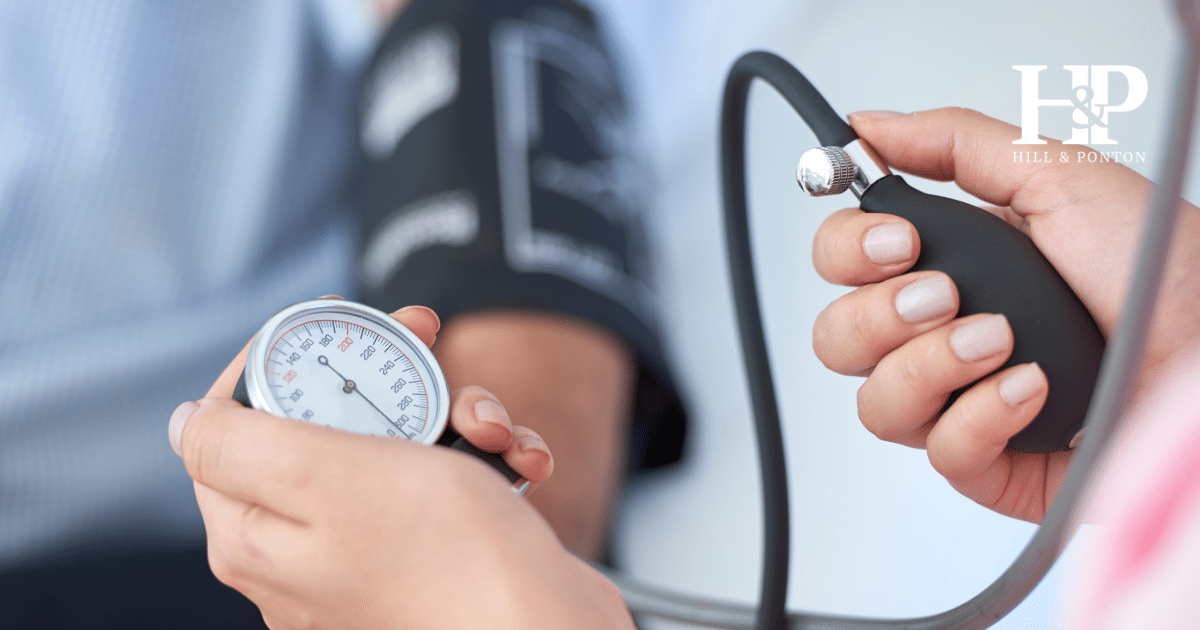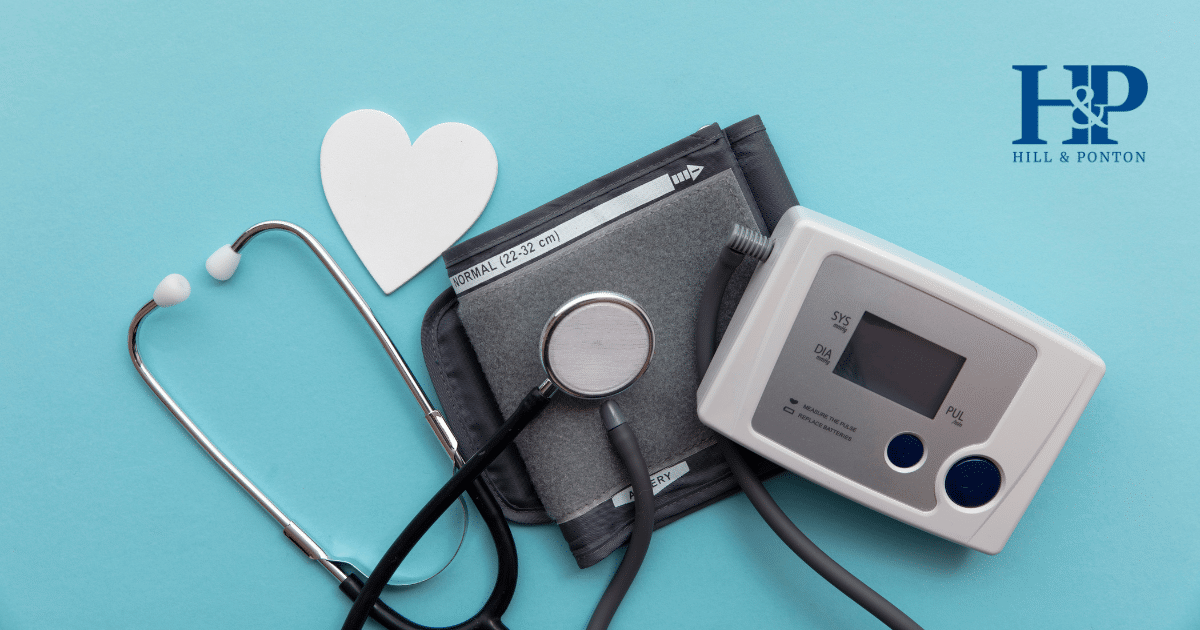Hypertension, or high blood pressure, is a common condition among veterans. This updated guide for 2024 provides comprehensive information on VA ratings for hypertension, filing and winning your VA claim, appealing a VA decision and increasing your compensation.
How Does VA Rate Hypertension?
The compensable VA ratings for hypertension are 10%, 20%, 40% and 60%, depending on blood pressure readings and the need for continuous medication.
- 0%: This percentage is granted when the veteran has a diagnosis of hypertension related to their military service but they do not meet the criteria for a compensable rating.
- 10% Rating: Diastolic pressure predominantly 100 or more, or; systolic pressure predominantly 160 or more, or; minimum evaluation for an individual with a history of diastolic pressure predominantly 100 or more who requires continuous medication for control.
- 20% Rating: Diastolic pressure predominantly 110 or more or systolic pressure predominantly 200 or more.
- 40% Rating: Diastolic pressure predominantly 120 or more.
- 60% Rating: Diastolic pressure predominantly 130 or more.
VA Rating for Hypertension While on Medication
Medication plays a significant role in managing hypertension, and VA recognizes this in their rating criteria. If a veteran requires continuous medication to control their high blood pressure, this is a 0% rating but VA will assist the veteran in getting medications and provide treatment.
Maximize Your Benefits
Unhappy with your VA decision? We’re here to help. Contact us for a free review of your case.
VA will also provide Dependency and Indemnity benefits to eligible surviving dependents if the veteran passes away due to a condition related to their hypertension such as a heart attack or stroke.
Even if the veteran’s hypertension is controlled by medication or lifestyle changes, they can still be eligible for benefits, such as medications and treatment. They can also apply for secondary conditions.
Average VA Rating for Hypertension
The average VA rating for hypertension tends to be around 0-10%, reflecting the common need for continuous medication and moderate elevation in blood pressure readings.
Is Hypertension a Presumptive Condition?
Certain conditions are considered “presumptive” by VA, meaning they are presumed to be service-connected without the need for specific evidence linking the condition to military service. Hypertension is a presumptive condition for veterans exposed to Agent Orange and other herbicides during their service. It is also presumptive if it manifests to a minimum rating of 10% within one year of discharge.
How To Prove Service Connection
If hypertension is not covered under the presumptive conditions, veterans can establish a entitlement through direct or secondary service connection. To establish direct service connection veterans require:
- Medical Evidence: Detailed medical records showing a diagnosis of hypertension during or shortly after military service.
- Nexus Letter: A letter from a qualified medical professional linking hypertension to military service.
- Service Medical Records: Documentation of high blood pressure readings or related health issues during service.
Hypertension can also be a secondary condition resulting from other service-connected disabilities. For example, conditions such as diabetes, kidney disease, or PTSD can lead to or exacerbate hypertension.
Is It Hard to Get VA Disability for Hypertension?
VA rates hypertension based on the severity of the condition and the impact it has on the veteran’s health, therefore key factors include blood pressure readings and the need for continuous medication. Understanting the rating criteria and gathering the right documentation can significantly enhance your ability to secure VA compensation. To learn more about filing (and winning!) your VA claim, check out our FREE step by step guide.
How to File a VA Claim for Hypertension
- Log in to your VA.gov account.
- Fill out VA Form 21-526EZ, “Application for Disability Compensation and Related Compensation Benefits.”
- Provide detailed information about your hypertension, including when it was first diagnosed and its connection to your service.
Supporting Documents to Upload:
- Medical records and treatment documentation.
- Service medical records showing high blood pressure.
- Nexus letter from your doctor.
- Additional supporting documents, like statements from family or coworkers.
Review your information for accuracy and submit the claim. Keep track of your VA claim status through your VA.gov account, and be prepared to provide additional information or attend a VA Compensation & Pension exam if requested.
How to Increase a Hypertension Disability Rating
- Document Worsening Symptoms: Keep detailed records of your blood pressure readings, any new symptoms, and how your condition has worsened.
- Medical Re-Evaluation: Obtain updated medical evaluations that reflect the current severity of your hypertension.
- File a Claim for Increased Rating : Submit a claim with VA, providing the new medical evidence and documentation of your worsening condition or evidence of an error in the initial rating.
- File for Secondary Conditions: Hypertension can lead to other health issues, which may qualify for additional compensation. See what conditions are secondary to hypertension.
TDIU for Hypertension
Total Disability Individual Unemployability (TDIU) is an option if high blood pressure severely impacts your ability to work. TDIU provides benefits at the 100% disability rate even if your combined percentage is less than 100%.
If your condition is rated at 60% alone or you have another condition at 40% and combined with your hypertension and any other service connected conditions equals a 70% rating, (the hypertension does not need to be 40% – just one of the combined conditions does) and prevents you from maintaining substantially gainful employment, you may qualify for TDIU.
Case Example: How a Veteran Won a Compensable Rating
A veteran who served on active duty from 1977 to 1981 and from 1982 to 1998 filed a claim for service connection for hypertension. Initially, the veteran was granted service connection but assigned a noncompensable (0 percent) rating. He appealed this decision, arguing that he should receive a compensable rating because even with continuous medication, his diastolic readings would average 100 or more.
The veteran testified that his diastolic pressure was 100 or higher when he was first prescribed medication. He provided evidence from his VA treatment records, including a notable reading of 164/105 during an emergency room visit. Although the veteran did not provide private medical records or a detailed diary of his blood pressure, his testimony, combined with the available medical records, was sufficient to meet the criteria for a 10% rating.
The Board granted an increased rating of 10% for the veteran’s service-connected hypertension. The contributing factors to his success included:
- Consistent Medical Evidence: VA treatment records showed elevated blood pressure readings, and the veteran testified about his history of high blood pressure.
- Testimony on Medication Use: The veteran explained that he needed continuous medication to control his blood pressure, which supported the requirement for a compensable rating.
- Key Medical Record: The emergency room reading of 164/105 provided strong evidence that the veteran’s blood pressure could reach compensable levels without medication.
The Board found that the veteran’s hypertension met the criteria for a 10% rating due to the history of diastolic pressure reaching 100 or more, even though his blood pressure was controlled by medication.
VA Denied My Claim, What Do I Do?
If your hypertension claim is denied, don’t lose hope! There are steps you can take to turn things around:
- Understand the Reason for Denial: Carefully review VA’s decision letter to understand why the claim was denied.
- Gather Additional Evidence: Collect any new or missing medical records, statements, or expert opinions that support your claim.
- File an Appeal: Submit a Notice of Disagreement (NOD) and consider seeking legal assistance to strengthen your appeal. Contact us today to see if we are able to help.
Did the VA Deny Your Disability Claim?
Let our team review your case today!
Get a Free Case Evaluation



